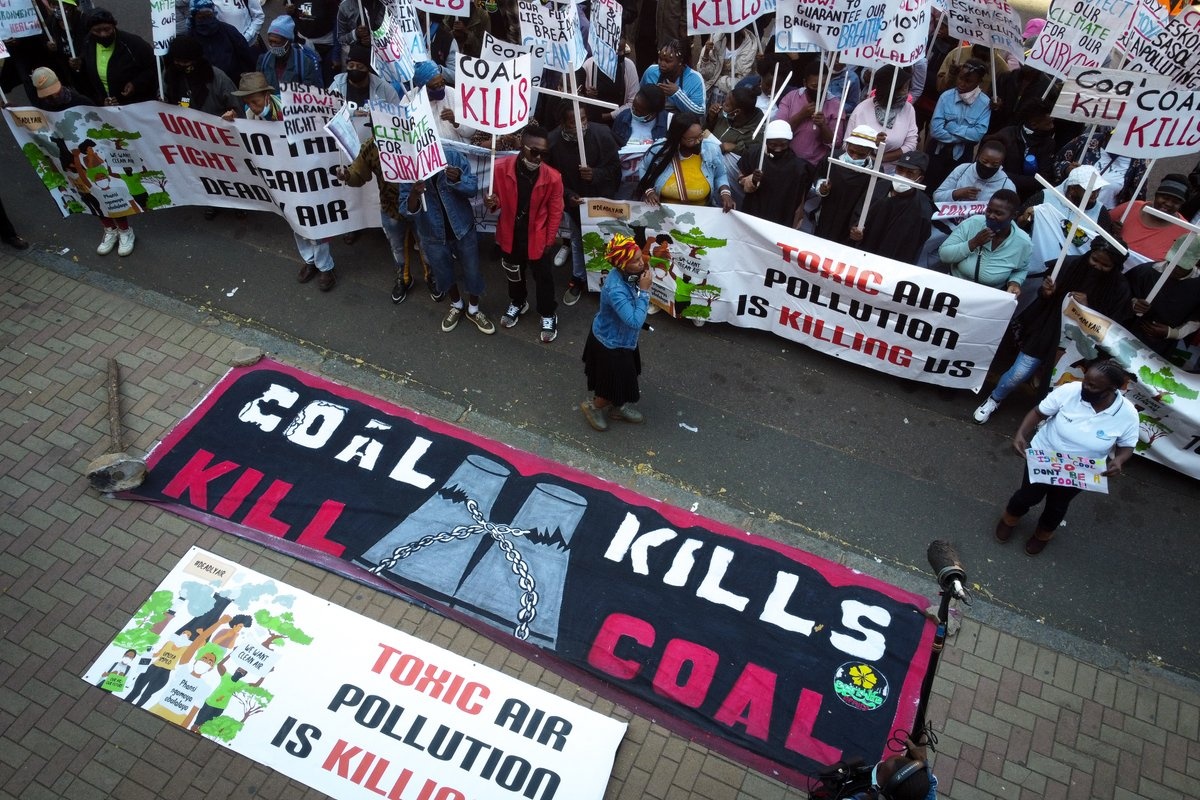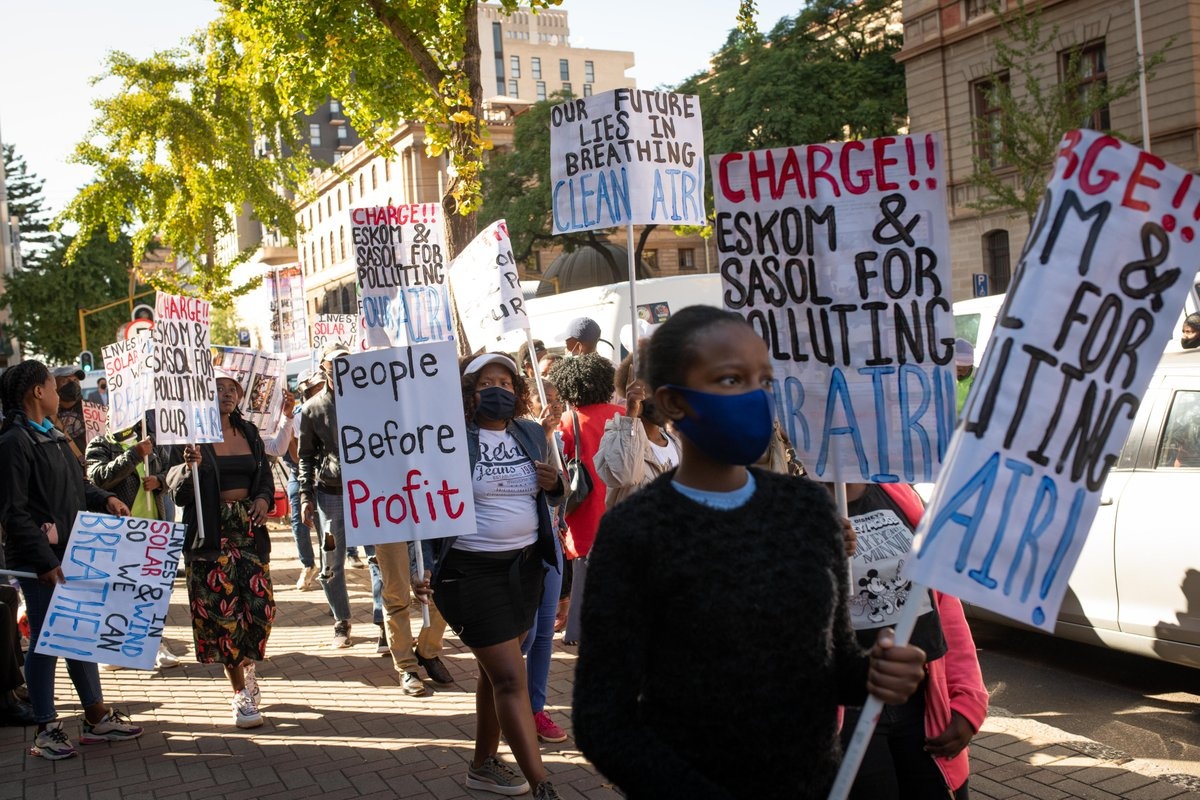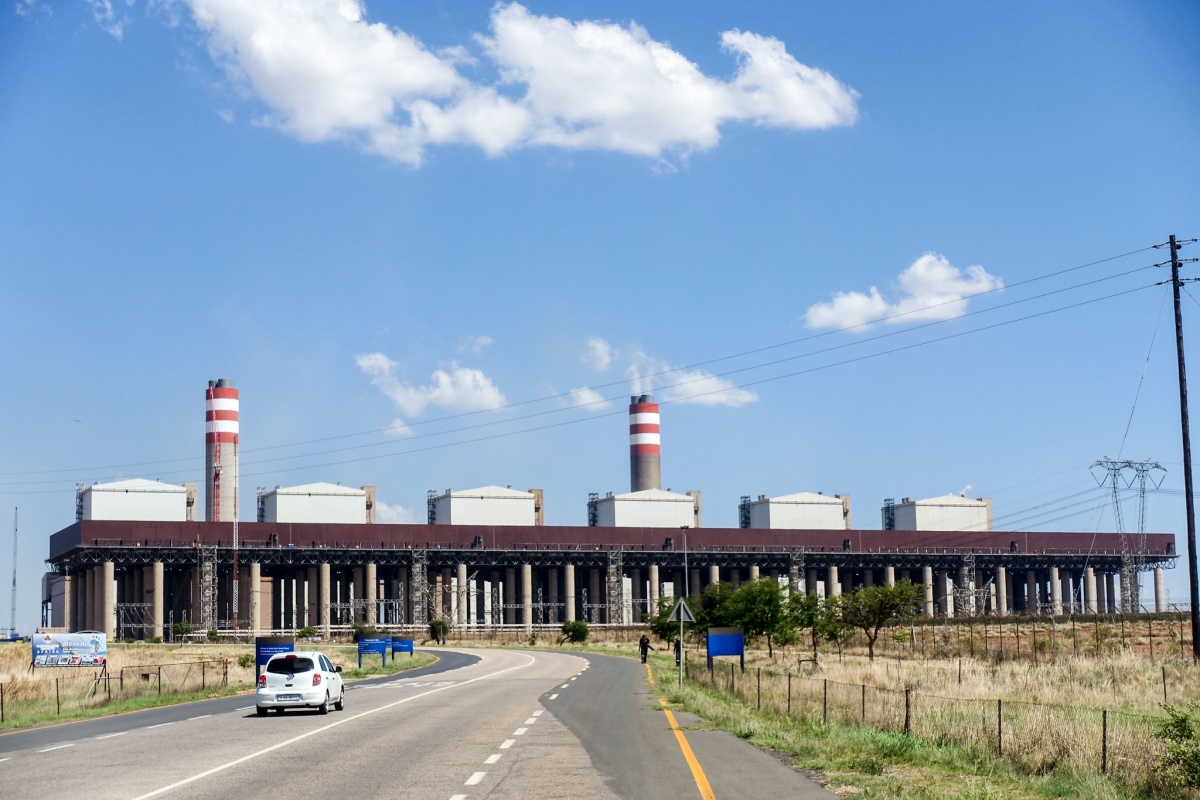Eskom
State-owned company Eskom is crumbling under the weight of corruption, mismanagement and coal dependency, while South Africans pay the price. The state-owned Eskom is supposed to supply 80% of South Africa’s electricity. In 2023, however, South Africans were without power for 6,947 hours. The power outages were caused by load shedding, a practice that was suspended by the company, only to replace it with a practice called load reduction. South Africa’s national energy regulator says that load reduction often targets and violates the human rights of disenfranchised communities, and local NGOs describe it as “energy racism”.

In 2023, then-CEO André de Ruyter claimed Eskom was losing an estimated $55 million a month to corruption. In February 2023, news broke of four criminal cartels operating inside Eskom. Corruption ranges from coal truck scams which swap high-quality coal for rubble, to grossly inflated costs such as paying $4,422 for knee pads which should cost $17. In February 2025, a Special Investigating Unit report exposed systemic manipulation of procurement processes by frontline workers and senior managers. Around 1 billion Rand (~$57 mil.) was stolen through contract splitting to bypass oversight.

Alongside corruption, coal is deeply entrenched in Eskom’s DNA, GCEL data shows it is still generating 92% of its power from coal. Two massive coal plants, Medupi and Kusile, came online in 2025. These projects which were supposed to solve the energy crisis came online a decade late, and have proved to be economically draining and harmful to South Africans and the environment. Each power plant emits around 30 million tons of CO2, worsening the region’s air quality, which is already the worst in the world. This is a result of Eskom repeatedly dodging environmental obligations, such as minimum emissions standards. These standards were introduced in 2010 and were to be implemented by 2020. Eskom has so far failed to comply and was granted an initial extension until 2025, followed by a further extension for 5-10 years. Even before these exemptions, Eskom was rated the top power company polluter of the dangerous gas sulfur dioxide.

